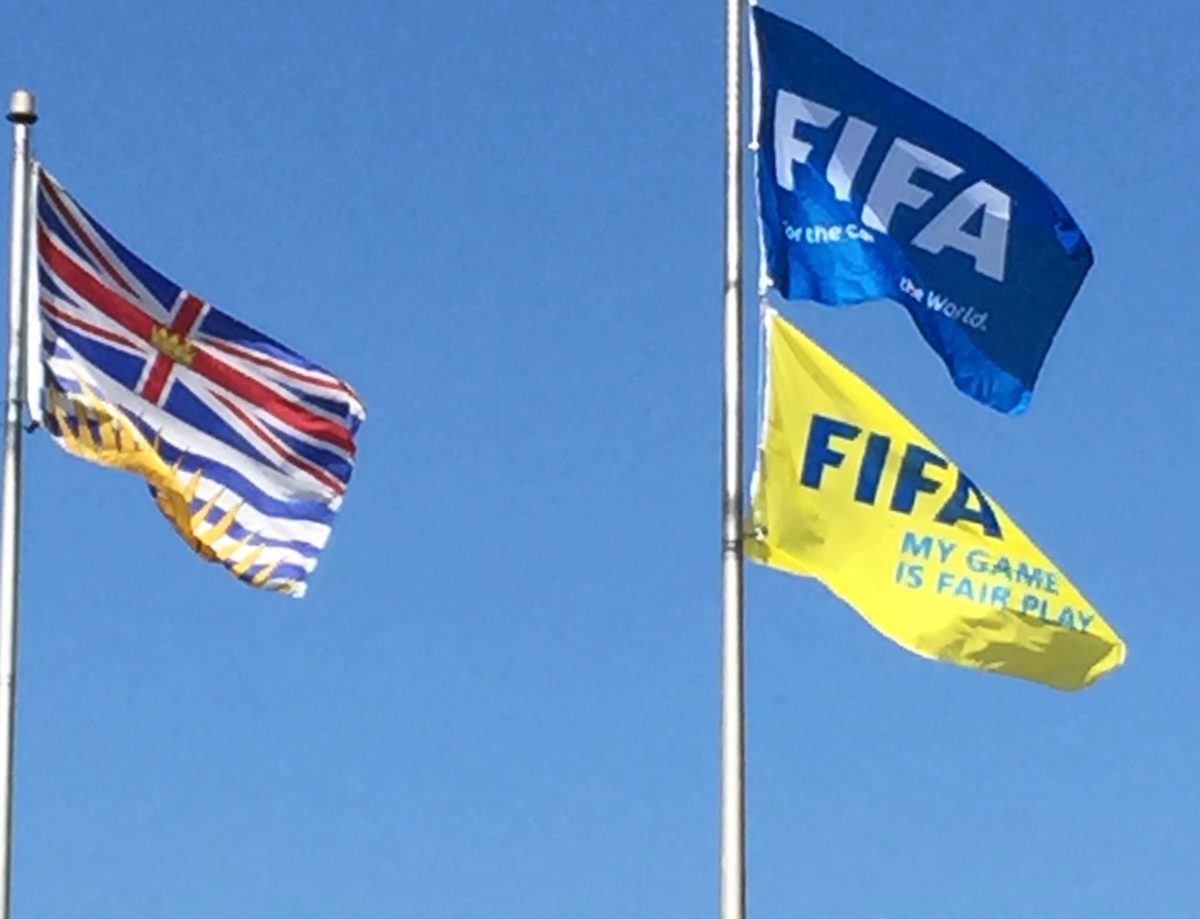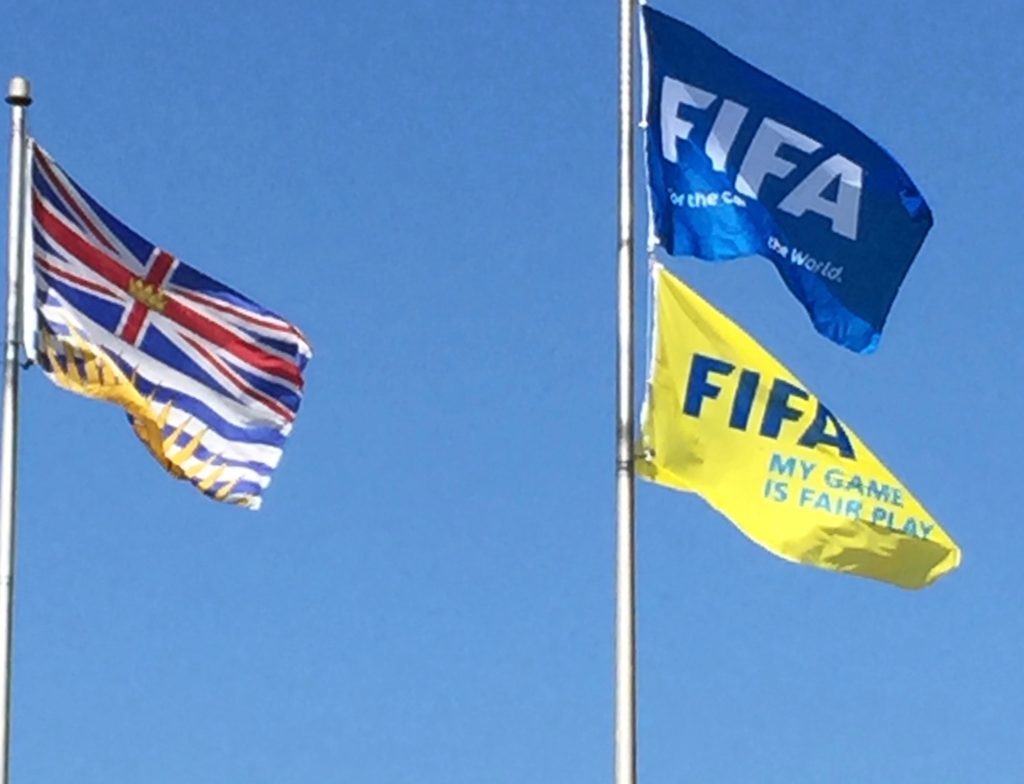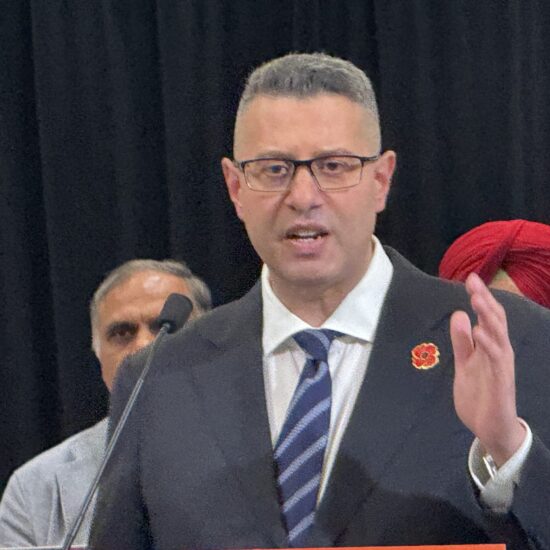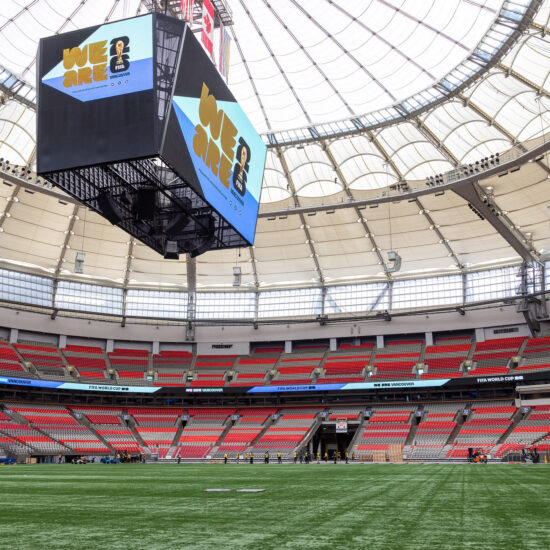
Bob Mackin
The cost to Vancouver taxpayers for the FIFA 2026 World Cup has doubled.
The provincial government estimated last spring that it would cost $240 million to $260 million overall to bring the U.S., Canada and Mexico-hosted tournament to BC Place Stadium, but it did not reveal the funding formula.

British Columbia and FIFA flags in 2015 outside the Westin Bayshore host hotel (Mackin)
“The city’s expected costs were estimated at approximately half of this amount at that time, based on a very preliminary assessment of hosting requirements,” said a provincial background statement released on Friday.
Then-Mayor Kennedy Stewart earmarked $5 million for hosting matches, three months before FIFA officially named Vancouver as one of the 16 cities. City hall kept a tight lid on the actual proposed costs, directing reporters to contact the province.
Due to inflation and after further meetings with FIFA, the province now says the cost to the city will be $230 million for planning, staging and hosting. That does not include costs to renovate and erect temporary facilities in B.C. Place Stadium and procure two natural grass fields.
The city must also pay $73 million for security and safety, $40 million for venues, $20 million for the FIFA Fan Festival, $15 million for a host city office, administration and volunteer services, $14 million for traffic and stadium zone management and services, $8 million for decoration and brand protection, and $8 million for insurance.
The $230 million estimate is subject to change and include $52 million for contingency and inflation.
The city plans to pay for the event over seven years, beginning Feb. 1, by charging a temporary 2.5% tax on short-term accommodations.
“The temporary tax could generate approximately $230 million in revenue over seven years,” said the provincial news release.
Last fall, the provincial government amended the Provincial Sales Tax Act in order for city hall to increase the Musical and Regional District Tax on accommodations.
Vancouver and Toronto are expected to see five matches each under FIFA’s 80-match, 48-nation format. However, during the Qatar 2022 World Cup, FIFA executives were privately mulling enlarging the tournament by two dozen games. The opening round of 16 groups of three teams could be modified for 12 groups of four, which would open the door for additional matches in Canada.
Destination Vancouver estimates the World Cup will draw 269,000 visitors, half of them from outside Canada and the U.S.
Research by sports economist Victor Matheson, a professor at the College of the Holy Cross in Massachusetts, has consistently cautioned that mega-event promoters and industry lobbyists rely on input-output modelling in order to attract or defend public subsidies.
In one of Matheson’s reports, “Mega-Events: The Effect of the World’s Biggest Sporting Events on Local, Regional, and National Economies,” he found that many large sporting events “simply supplant, rather than supplement the regular tourist economy.”
“In other words, the economic impact of a mega-event may be large in a gross sense but the net impact may be small,” Matheson concluded.
Support theBreaker.news for as low as $2 a month on Patreon. Find out how. Click here.











